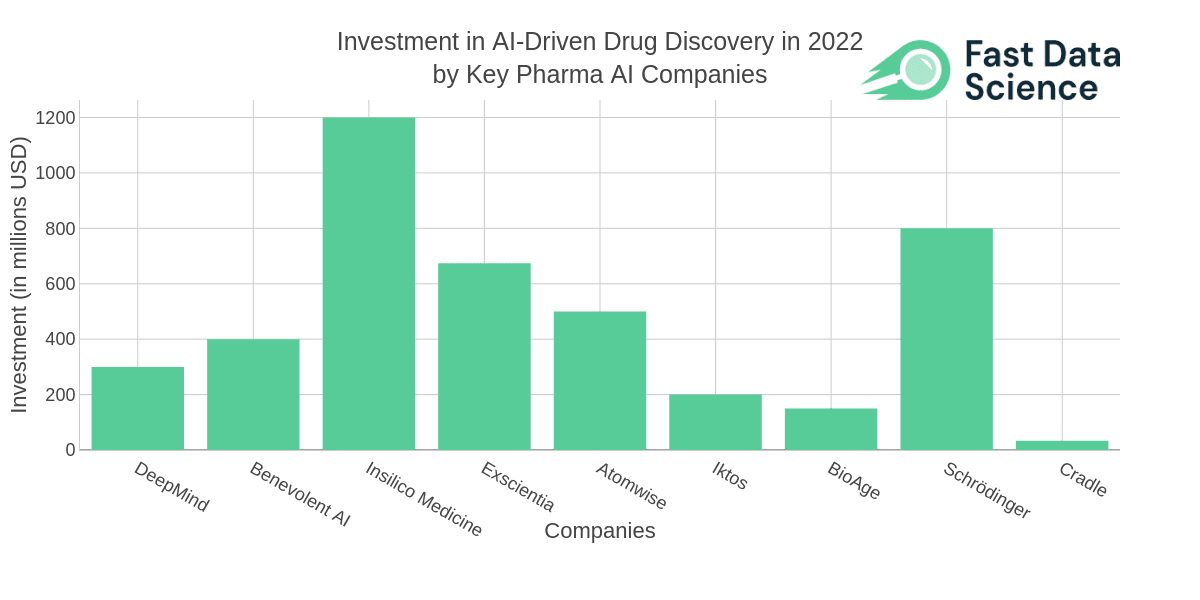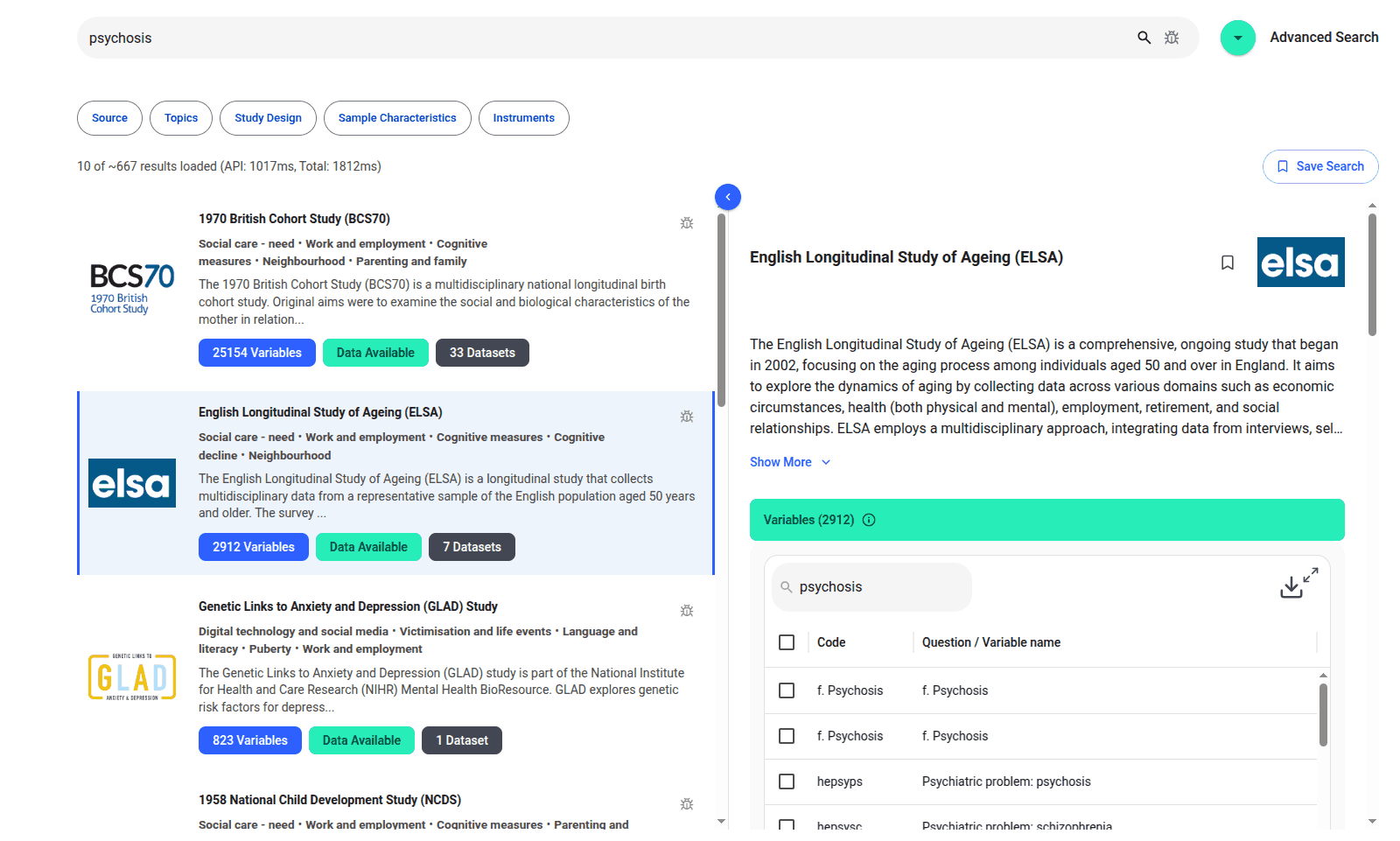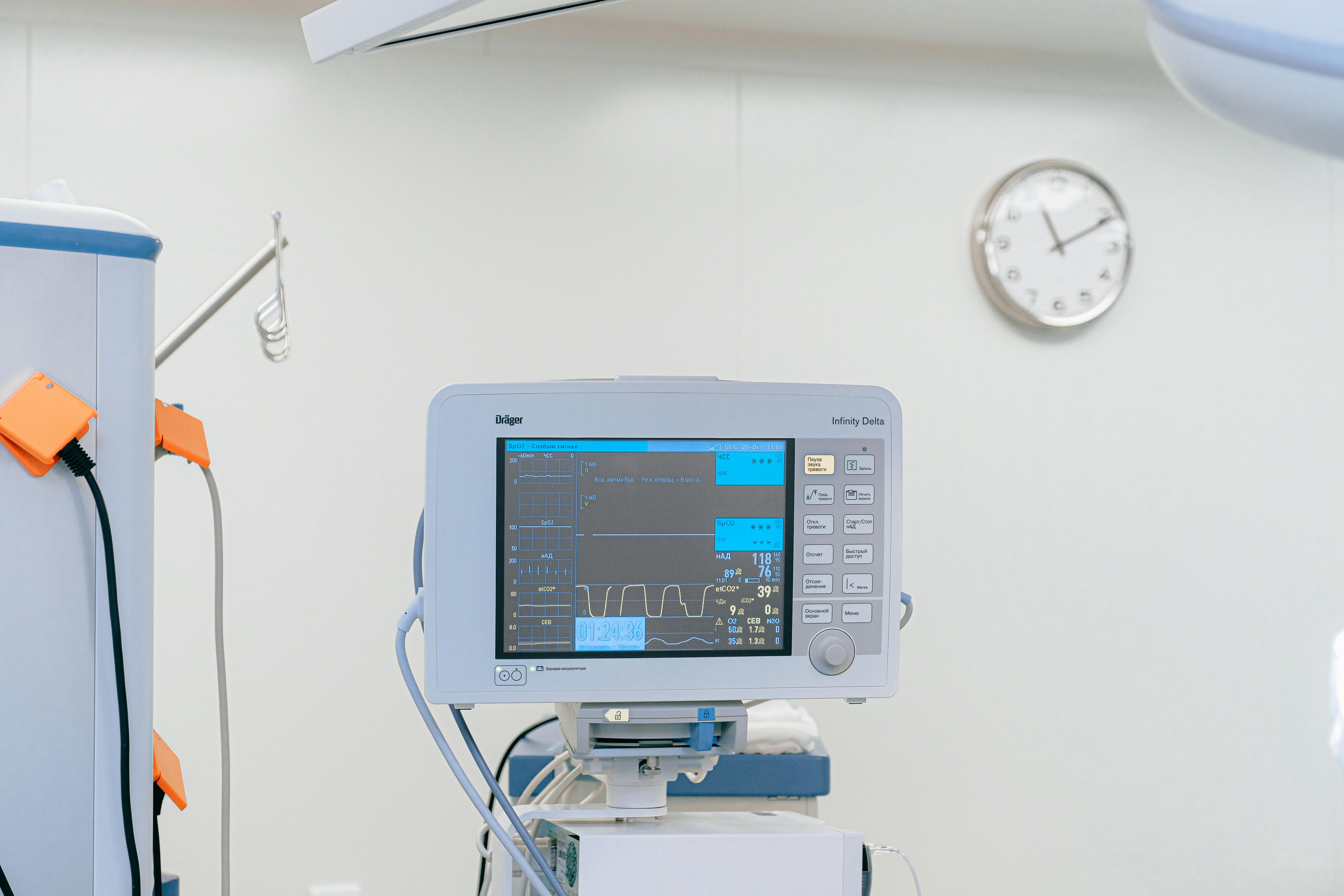
Artificial intelligence (AI) has emerged as a transformative force in the pharmaceutical industry. By accelerating drug discovery, optimizing clinical trials, and enabling precision medicine, AI is revolutionizing how treatments are developed and delivered. With the ability to analyze enormous datasets and simulate biological processes, AI-driven solutions are shortening the time from research to market while improving accuracy. In this blog, we explore the companies leading the way in AI-powered drug development, their notable projects, and how AI is reshaping the future of healthcare.
Drug discovery is a complex process. It can take more than 10 years and billions of dollars to develop a single drug. Artificial intelligence (AI) has begun to streamline this process by analyzing molecular structures, predicting biological interactions, and identifying drug candidates faster and with higher accuracy. AI-powered models are now capable of suggesting potential drug compounds, conducting virtual simulations of trials, and even finding new purposes for existing medications.
Below are some of the most influential AI-driven companies in pharma, along with their achievements, projects, and partnerships.
| Company Name | Specialty | Key Achievements | Funding/Partners |
|---|---|---|---|
| DeepMind | Protein folding, drug discovery | AlphaFold; Nobel Prize (2024, Demis Hassabis) | Partnered with GSK, Pfizer |
| Benevolent AI | Drug discovery and repurposing | Identified baricitinib for COVID-19 | AstraZeneca; raised $400M+ |
| Insilico Medicine | AI-powered drug design and aging research | Developed INS018_055; $1.2B Sanofi deal | Sanofi, Pfizer |
| Exscientia | AI-led drug design and precision medicine | First AI-designed drug in trials; $674M Merck deal | Sanofi, Merck |
| Atomwise | Small molecule drug discovery | TYK2 inhibitor; Sanofi collaboration | Monsanto, DCVC |
| Iktos | AI for drug design and synthesis planning | Launched Iktos Robotics | Janssen, Merck |
| BioAge | AI for drug repurposing and longevity | Aging-focused therapies | Andreessen Horowitz, Khosla Ventures |
| Schrödinger | Computational chemistry and molecular simulations | AI-based drug discovery tools | Pfizer, Gates Foundation |
| Cradle | Generative AI for protein engineering | Collaborations with Janssen, Novozymes | $33M raised |

**Source: see References.
Pharmaceutical giants are embracing AI through partnerships to boost efficiency and innovation.
Artificial intelligence (AI) has become a game-changer in the pharmaceutical industry. Leading companies are leveraging AI to accelerate drug discovery, optimize clinical trials, and design targeted therapies. Below is a detailed look at key companies, their flagship projects, and how they are driving the future of pharma.
DeepMind, a subsidiary of Google, has made significant contributions to the pharmaceutical industry through its AI models. AlphaFold, DeepMind’s most prominent achievement, solved the decades-old problem of protein folding by predicting how amino acids fold into 3D structures. This breakthrough has enormous potential for drug development, as it helps scientists design drugs that can target proteins effectively.
DeepMind’s success in this field is so profound that Demis Hassabis’ Nobel Prize win is widely viewed as a symbol of AI’s potential in healthcare. AlphaFold is being used by GSK and Pfizer to develop therapies for diseases previously considered too complex to treat. It provides critical insights into disease mechanisms, helping pharmaceutical companies accelerate drug development.
Benevolent AI is focused on transforming drug discovery by finding new therapeutic purposes for existing drugs through AI. During the COVID-19 pandemic, the company used its AI models to identify baricitinib, an existing arthritis drug, as a treatment for severe COVID-19 cases. This discovery demonstrated the potential of AI in drug repurposing, saving time and resources during a global health crisis.
Benevolent AI is collaborating with AstraZeneca on treatments for chronic kidney disease and pulmonary fibrosis. With over $400 million in funding, the company continues to discover and validate new drug candidates across multiple disease areas.
Insilico Medicine is a pioneer in using AI to discover new drugs and extend healthy human lifespan. The company applies machine learning models to identify novel biological targets and generate molecular compounds. Insilico’s AI platform has already produced promising results, leading to collaborations with Pfizer and Astellas Pharma.
In 2023, INS018_055, an AI-discovered drug for idiopathic pulmonary fibrosis (IPF), became the first AI-generated drug to reach phase 2 trials. Insilico’s Pharma.AI Suite includes PandaOmics for target discovery, Chemistry42 for molecule generation, and InClinico for clinical trial predictions. The company also signed a $1.2 billion partnership with Sanofi to enhance drug discovery and trial predictions.
Exscientia is at the forefront of AI-designed drugs and personalized medicine. The company was the first to develop a drug molecule using AI that successfully entered human clinical trials. Exscientia’s approach integrates AI into every step of the drug discovery pipeline, from target identification to clinical testing.
The company’s GTAEXS617 drug candidate, targeting solid tumors, is in phase 1/2 trials. Exscientia’s partnerships include a $273 million deal with Sanofi and a $674 million agreement with Merck to develop therapies in oncology and immunology. The success of Exscientia demonstrates that AI is not just accelerating research but also improving the quality and precision of new therapies.
Atomwise uses deep learning models to predict how small molecules will interact with biological targets. This approach allows the company to quickly identify hit compounds that could serve as the starting point for drug development. Atomwise has developed AtomNet, an AI system capable of screening millions of molecules in a fraction of the time required by traditional methods.
Atomwise’s focus on small molecules is especially important for drug discovery, as these compounds often serve as the foundation for many effective therapies. In collaboration with Sanofi, Atomwise is working on up to five drug candidates for immune-mediated diseases. The company recently nominated a TYK2 inhibitor, an oral drug candidate for autoimmune diseases like psoriasis, lupus, and inflammatory bowel disease, with plans for IND submission by late 2024.
BioAge uses AI to discover new drugs that target the biological causes of aging. By analyzing large-scale clinical and molecular datasets, the company identifies biomarkers linked to longevity and age-related diseases. BioAge’s AI-driven platform helps pinpoint drug candidates that can improve healthspan and reduce the risk of diseases such as Alzheimer’s.
The company is developing therapies for conditions such as Alzheimer’s and cardiovascular diseases, with a goal to extend healthy lifespan and reduce the risk of chronic illness. BioAge’s research is supported by Andreessen Horowitz and Khosla Ventures.
Schrödinger is a leader in computational chemistry, offering AI-augmented tools for molecular simulation. Its platform helps pharmaceutical companies design better drugs by predicting molecular properties and biological interactions with high accuracy.
Schrödinger’s partnerships with Pfizer and the Bill & Melinda Gates Foundation highlight its role in advancing research in oncology and infectious diseases. Its AI-powered platform enables precise drug design, improving success rates and reducing time-to-market.
Cradle specializes in generative AI for designing proteins with enhanced properties for various applications, including vaccines and enzymes.
The company collaborates with Janssen and Novozymes on more than 12 R&D projects, focusing on improving protein properties such as binding affinity, stability, and activity. Cradle recently raised $33 million to accelerate these initiatives and develop bio-based solutions for human and environmental health.
Iktos uses AI to accelerate small molecule discovery and chemical synthesis with platforms like Makya and Spaya.
In 2023, Iktos launched Iktos Robotics, a platform that combines AI with automation to reduce drug discovery timelines. The company has partnered with Janssen, Merck, and Pfizer on over 50 drug discovery projects, aiming to streamline molecule design and synthesis planning.
Beyond individual projects, various AI-powered tools have emerged as vital components in the transformation of drug development. These tools provide pharmaceutical companies with the ability to streamline processes, reduce costs, and improve the likelihood of success.
Use Case: Protein Structure Prediction
AlphaFold by DeepMind is one of the most revolutionary AI advancements in recent years. It solved the 50-year-old problem of predicting the 3D structure of proteins from their amino acid sequences. This breakthrough has profound implications for drug discovery, enabling scientists to design drugs more accurately by understanding disease-causing protein mechanisms.
Impact:
Usage:
AlphaFold is widely adopted by companies such as GSK and Pfizer, helping target diseases that were previously untreatable and advancing research on complex conditions like Alzheimer’s.
Use Case: Small Molecule Discovery
AtomNet is an AI-powered platform by Atomwise designed to streamline small molecule drug discovery. Using deep learning algorithms, it predicts how molecules will interact with biological targets, accelerating the identification of drug candidates.
Key Features:
Impact:
AtomNet’s ability to speed up discovery reduces reliance on traditional trial-and-error processes. Atomwise recently identified a TYK2 inhibitor, targeting autoimmune diseases like psoriasis and lupus, with plans for IND submission in late 2024.
Use Case: End-to-End AI for Drug Discovery
Insilico Medicine’s Pharma.AI suite integrates AI tools across every stage of the drug development lifecycle.
Project Highlight:
In 2023, INS018_055, an AI-designed drug for idiopathic pulmonary fibrosis (IPF), became the first AI-generated drug to reach phase 2 trials.
Impact:
Use Case: AI-Enhanced Drug Design and Synthesis
Iktos offers two advanced AI tools:
Innovation:
In 2023, Iktos launched Iktos Robotics, a platform that combines AI with automated chemical synthesis to reduce drug discovery timelines.
Key Collaborations:
Iktos has partnered with Janssen and Merck, among others, to accelerate research and drug design.
Use Case: Precision Medicine and Drug Discovery
Exscientia is known for its AI-powered oncology platform, which uses functional data to personalize treatments for cancer patients. The platform also facilitates the development of small molecules, progressing them to clinical trials.
Project Highlight:
The GTAEXS617 candidate is undergoing phase 1/2 trials for solid tumors.
Key Collaborations:
Exscientia’s partnerships include Sanofi, Merck, and Bristol-Myers Squibb, focusing on oncology and immunology.
Impact:
Use Case: AI for Drug Discovery and Connected Healthcare
Sanofi collaborated with Aily Labs to develop the plai platform, an AI-powered system that aggregates internal data to enhance decision-making across drug development processes.
Innovation:
The platform plays a key role in Sanofi’s connected healthcare products, such as AI-enhanced insulin pens.
Impact:
Use Case: AI in COVID-19 Treatment Development
Pfizer leveraged IBM’s AI and supercomputing technologies to develop PAXLOVID, an oral COVID-19 treatment, within just four months. AI accelerated the design process, reducing computational time by 80-90%.
Impact:
As pharmaceutical companies continue to adopt AI-powered tools, the industry is moving toward a future where drug discovery is faster, cheaper, and more precise. With AI’s growing influence, the next decade promises unprecedented breakthroughs that will make life-saving treatments more accessible to people worldwide.
The future looks bright for AI in the pharmaceutical industry. Pharmaceutical giants like Pfizer, Sanofi, and Novartis are increasingly investing in AI technologies, both through in-house development and partnerships with AI-driven startups. According to a recent report from PharmaVoice, the global investment in AI-driven drug discovery is expected to surpass $20 billion by 2030.
While there are challenges such as regulatory hurdles and data privacy concerns the opportunities far outweigh the risks. AI has the potential to reduce drug development costs, shorten timelines, and develop treatments for diseases that were once considered incurable.
Despite its immense potential, the integration of AI into pharmaceuticals is not without challenges:
Companies must navigate these challenges carefully, balancing innovation with compliance and security to fully unlock AI’s potential.
Artificial intelligence is changing the pharmaceutical industry at an unprecedented pace. From drug discovery and clinical trials to personalized medicine, AI is opening doors that were previously unimaginable. Companies like DeepMind, Benevolent AI, Atomwise, Insilico Medicine, and Exscientia and a host of emerging startups are leading the way, driving the industry forward into a future where drug development is faster, cheaper, and more effective.
The Nobel Prize awarded to Demis Hassabis underscores the impact AI is already having—and this is just the beginning. As investments grow and partnerships expand, the pharmaceutical industry is poised to become faster, more efficient, and more innovative than ever before.
With investments pouring in and AI capabilities expanding, the pharmaceutical industry is on the cusp of a new era. This journey is just beginning, and the innovations we see today are only a glimpse of what AI can achieve in the future.
Madhumita Murgia and Michael Peel, The week that artificial intelligence swept the Nobel Prizes, Financial Times, 2024
Hannah Kuchler and Clive Cookson, Investors bet on AI start-ups to turbocharge drug development, Financial Times, 2024
Pharmaceutical Technology, Artificial intelligence: who are the leaders in drug repurposing AI for the pharmaceutical industry?, 2024
Alexandra Peccim 5 noteworthy pharma AI investments in 2023, PharmaVoice, 2023
Unleash the potential of your NLP projects with the right talent. Post your job with us and attract candidates who are as passionate about natural language processing.
Hire NLP Experts
We are excited to introduce the new Harmony Meta platform, which we have developed over the past year. Harmony Meta connects many of the existing study catalogues and registers.

Guest post by Jay Dugad Artificial intelligence has become one of the most talked-about forces shaping modern healthcare. Machines detecting disease, systems predicting patient deterioration, and algorithms recommending personalised treatments all once sounded like science fiction but now sit inside hospitals, research labs, and GP practices across the world.

If you are developing an application that needs to interpret free-text medical notes, you might be interested in getting the best possible performance by using OpenAI, Gemini, Claude, or another large language model. But to do that, you would need to send sensitive data, such as personal healthcare data, into the third party LLM. Is this allowed?
What we can do for you